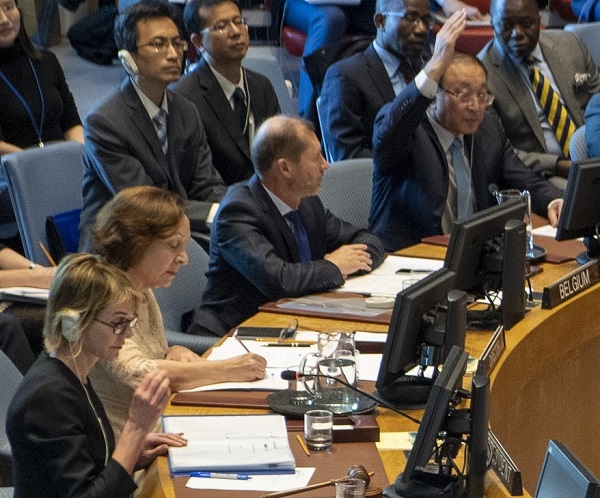
United Nations, Russia and China have vetoed a UN Security Council resolution to keep three border crossings open for sending humanitarian aid to Syria.
All the other 13 countries voted for the resolution that would have kept the two crossing points from Turkey and one from Iraq open for a year when the authorisation for them ends on January 10, 2020.
A counter resolution proposed by Russia and China for keeping open only the Turkish points for six months failed to garner the nine votes required to pass.
Secretary-General Antonio Guterres’s spokesperson Stephane Dujarric said the humanitarian situation in northwest and northeast Syria was “horrific” and if the border crossings were closed, the situation would get markedly worse.
Friday was the last session of the Security Council for the year as it winds up work before the holiday season.
It will have to work frantically for a solution to keep the crossings open when it resumes work next month to avoid the humanitarian crisis predicted by the UN for the four million people in the area served by it and other organisations through the checkpoints.
Russia’s Permanent Representative Vassily Nebenza said that the government of Syrian leader Bashar al-Assad controls enough of the territory and has adequate checkpoints for the aid to get to the country.
Some of the aid going through the four crossing points were ending up in the hands of terrorist organisations, he said.
China’s Permanent Representative Zhang Jun said that the circumstances under which the mechanism for the crossing points had been created were changed and all aid programmes should respect the national sovereignty of Syria.
The Russian and Chinese vetoes are reckless, irresponsible and cruel and Damascus has decided to starve its own citizens, US Permanent Representative Kelly Craft said.
Germany, Belgium and Kuwait, which sponsored the vetoed resolution, tried unsuccessfully till the last moment for a compromise by dropping the fourth crossing from Jordan and providing for a review after six months.
After the Russia-China resolution failed, Nebenza said it was an attempt at compromise and now “no one has won today; the Syrian people have lost”.
Craft countered that the goal of the Russian Federation was to score political points and Moscow would rather see Syrian civilians starve than let down Assad.
The four checkpoints were created because Assad would not allow aid to go the rebel-held areas, some of which have been retaken by Syria with Russian help.
The UN and others shipped humanitarian supplies, inclduding medical aid, through convoys entering Syrian territories through them and the Council’s authorisation prevented the Damascus government from interfering with them.








